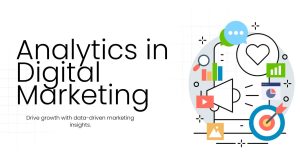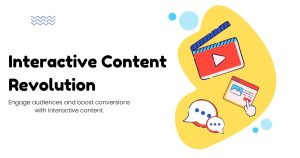What Is the Most Powerful Word in Marketing?

In marketing, every word matters. A single word can spark curiosity, drive clicks, or even trigger a sale. But if you had to choose just one—the most powerful word in the entire marketing world—what would it be?
Most experienced marketers, copywriters, and behavioral scientists agree on one thing: the most powerful word in marketing is “you.”
Why “You” Holds So Much Powerful Word
It may seem simple. After all, it’s just a three-letter word. But “you” speaks directly to the reader or listener. It personalizes the message. It turns generic marketing into a conversation.
When people hear or read “you,” it signals that the message is relevant to them. It’s not about some faceless consumer. It’s about them. Their life, their challenges, their needs.
The Psychology Behind the Word “You”
Psychologists have long studied how personalization affects behavior. Our brains are wired to pay attention to things that relate to us. When we hear our name or feel spoken to directly, we engage more.
In marketing, “you” works similarly. It breaks the fourth wall. It draws people in.
Compare these two sentences:
-
“Our product improves productivity.”
-
“You’ll get more done in less time.”
Which one feels more compelling? The second one, no doubt. That’s because it centers the reader.
Building Trust Through Personal Connection
Trust is everything in marketing. Customers won’t buy from brands they don’t trust. And trust starts with connection.
“You” helps create that connection. When you use it in your messaging—on landing pages, emails, product descriptions—it tells your audience, “We understand you. We care about your experience.”
This small shift in language can make your content feel more human. Instead of being a brand talking at people, you become a brand talking to them. Pairing powerful marketing words with strong emotional motivators can boost your campaign’s impact.
Real-World Examples That Prove Its Power
Take a look at some of the world’s most successful ad campaigns, and you’ll see “you” front and center.
-
Nike: “Find your greatness.”
-
Apple: “What will your verse be?”
-
L’Oréal: “Because you’re worth it.”
These slogans work because they speak to the individual. They don’t just promote a product—they promote you using that product, you becoming better, you making a change.
Using “You” in Different Marketing Channels
Email Marketing
Subject lines that include “you” often get higher open rates. Phrases like “You forgot something” or “We’ve got something just for you” feel more personal. And when the email content continues to speak directly to the reader, engagement increases.
Website Copy
On your homepage, product pages, or service descriptions, use “you” to guide the visitor. Don’t just say what your business does. Say how it helps them.
For example:
-
Instead of “Our software automates scheduling,” write “You can save hours by letting our software handle your scheduling.”
Social Media
Even in short-form content, “you” can create deeper interaction. Questions like “What would you do in this situation?” or captions that include “you” see more engagement because people feel included in the conversation.
Why Marketers Still Miss This Word
Despite its power, many businesses forget to use “you” effectively. Some fall into the trap of focusing too much on their brand—what they do, how they work, why they matter.
But consumers don’t care about your business until they know what’s in it for them. That’s where “you” comes in. It shifts the message from self-centered to customer-centered.
Avoiding Overuse and Sounding Robotic
Yes, “you” is powerful. But it shouldn’t be used just for the sake of it. Like all tools, it works best when used with purpose and context.
If every other sentence starts with “you,” your message can feel unnatural. Blend it with real empathy. Make sure it sounds like you’re speaking with your audience, not marketing at them.
For example, balance this:
“You need this. You want that. You’ll love it.”
With something like:
“We created this for people like you—who value time, quality, and simplicity.”
The second example still centers the reader but feels more human.
The Broader Impact of Language in Marketing
While “you” is the standout word, it’s part of a bigger picture. Every word you choose either brings your customer closer or pushes them away. Clarity, simplicity, and authenticity always win.
Words like “free,” “because,” and “imagine” are also strong performers. But none of them are as universally effective as “you.”
Because “you” meets your audience where they are. It tells them they matter. And in a crowded market, that’s what people want to feel.
Bringing It All Together
So, what is the most powerful word in marketing?
It’s not “guaranteed.” It’s not “limited-time.” It’s not even “free.”
It’s “you.”
Because marketing, at its core, isn’t about broadcasting. It’s about connecting. And nothing connects faster or more deeply than speaking directly to someone—letting them feel seen, heard, and understood.
If you want better results in your marketing, don’t just tell your story. Show your audience where they fit in that story.
Start with “you.”





